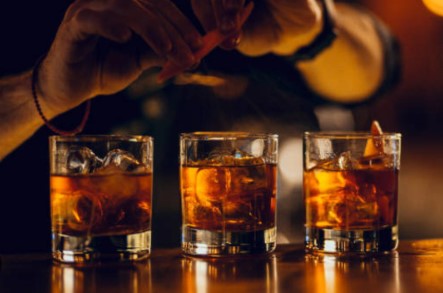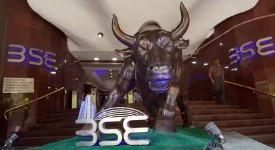Bharat is set to introduce a major overhaul of its liquor advertising regulations, aiming to eliminate loopholes exploited by surrogate advertisements and event sponsorships. The new rules, set to be unveiled within a month, will significantly impact companies such as Carlsberg, Pernod Ricard, and Diageo, requiring them to revamp their marketing strategies.
Currently, surrogate ads circumvent the direct liquor advertising ban by promoting items like water, music CDs, or glassware, often decorated with logos and colours associated with alcoholic beverages. These ads frequently feature prominent Bollywood celebrities, a practice that will now come under scrutiny.
Nidhi Khare, the top civil servant overseeing consumer affairs, stressed that the new regulations will impose penalties on both companies and endorsers for misleading advertisements. “Our approach is to close any loopholes in promoting alcoholic products,” Khare explained. “If advertisements are found to be misleading, both the endorsers and the companies will face consequences.”
For instance, Carlsberg’s promotion of Tuborg drinking water, which mimics its beer advertisements with a similar slogan and visuals, and Diageo’s YouTube ad for Black and White ginger ale, which features branding from its scotch, could be affected by these new rules.
The changes are significant for the Indian alcohol market, which is the eighth-largest in the world by volume, with annual revenues estimated at $45 billion by Euromonitor. Bharat’s growing affluence makes it an attractive market for major players like United Breweries (part of the Heineken Group) and Diageo, which collectively hold substantial market shares.
Under the draft rules, surrogate advertising, including sponsorships and promotions of products closely resembling alcohol brands, will be strictly prohibited. Violations could lead to fines up to 5 million rupees ($60,000) and endorsement bans ranging from one to three years.
While Carlsberg declined to comment, the International Spirits and Wines Association of Bharat, representing major companies including Diageo and Pernod, has expressed its commitment to compliance. The group is engaged in discussions with the government to ensure that brand extension practices adhere to the new guidelines.
The World Health Organisation (WHO) supports stringent restrictions on alcohol advertising as a cost-effective public health measure. Its data projects an increase in per capita alcohol consumption in India by 2030, highlighting the need for effective regulatory measures.
The revised regulations will specifically target marketing of non-alcoholic items that mimic liquor brand features. This follows warnings issued to companies like Pernod and domestic tobacco firms to cease misleading advertisements.
Khare noted that while Bharat is not opposed to brand extension ads, these should accurately represent the products they promote, rather than misleading consumers about their association with alcohol brands.
For example, a Pernod ad for Blenders Pride glassware, which uses branding similar to its whisky, and features Bollywood star Alia Bhatt in a promotional video, will be scrutinised under the new rules if it is found to mislead consumers about its true nature.

















